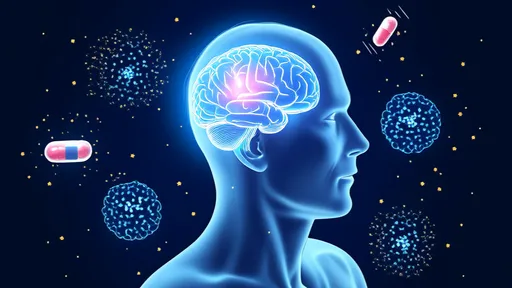The modern world bombards us with instant gratification - endless scrolling, binge-watching, and the constant ping of notifications. In this hyper-stimulating environment, a countercultural movement has emerged: dopamine detox. Promoted as a reset button for our overloaded brains, this practice promises to break addictive cycles and restore focus. But is it truly the antidote to digital age malaise, or just another self-help trend dressed in scientific jargon?
Dopamine detox operates on a simple premise. By voluntarily abstaining from pleasure-inducing activities - social media, video games, junk food, even casual sex - we supposedly allow our dopamine receptors to "reset." Proponents claim this period of deprivation makes ordinary life more satisfying while strengthening self-control. The movement has gained particular traction among tech workers and productivity enthusiasts, with Silicon Valley executives and famous YouTubers alike swearing by its benefits.
Neuroscience offers some support for the theory behind dopamine fasting. Chronic overstimulation does lead to receptor downregulation - essentially, our brain becomes less responsive to dopamine over time. This creates a vicious cycle where we need ever-greater stimulation to feel the same pleasure. Animal studies show that periods of abstinence can reverse some of these changes. However, the human brain is infinitely more complex than laboratory rats, and translating these findings into lifestyle advice requires caution.
The detox movement often portrays dopamine as the "pleasure chemical," but this oversimplification misses its nuanced role in motivation and learning. Dopamine doesn't just make us feel good - it drives us to seek rewards in the first place. Completely eliminating dopamine-triggering activities might backfire, leaving practitioners lethargic and unmotivated rather than rejuvenated. Some neuroscientists argue that what we call "dopamine detox" is really just practicing moderation - a concept as old as civilization itself.
Critics highlight several flaws in the dopamine detox narrative. First, the very term "detox" misrepresents how neurotransmitters work. Unlike actual toxins, dopamine isn't something we accumulate and need to purge. Second, the movement often conflates different types of rewards - comparing the dopamine hit from eating chocolate to that of meaningful social interaction reveals a reductionist view of human experience. Finally, the one-size-fits-all approach ignores individual differences in neurochemistry and lifestyle.
Beyond scientific debates, the cultural significance of dopamine detox warrants examination. Its popularity speaks to widespread dissatisfaction with modern life's constant demands for attention. The practice appeals to those feeling controlled by their devices and habits, offering an illusion of control in an overwhelming world. In this sense, whether or not it "works" neurologically becomes somewhat secondary to its psychological value as a ritual of resistance against digital capitalism.
Interestingly, dopamine detox has spawned its own industry. Retreat centers offer expensive "digital detox" packages, apps promise to help users track their abstinence, and influencers sell customized detox plans. This commercialization raises eyebrows - can a practice predicated on rejecting instant gratification truly flourish within the very system of consumption it claims to oppose? The contradiction highlights how easily anti-consumerist trends get co-opted by the marketplace.
The most compelling critiques come from mental health professionals. They warn that extreme forms of dopamine fasting can veer into disordered behavior, with some participants developing an unhealthy obsession with self-denial. For individuals prone to obsessive tendencies, what begins as a self-improvement project may morph into another form of self-punishment. Therapists also note that complete avoidance of pleasurable activities rarely constitutes a sustainable or mentally healthy long-term strategy.
Perhaps the most balanced approach incorporates elements of dopamine awareness without strict detox dogma. Many find value in periodically examining which activities truly enrich their lives versus those that merely provide empty stimulation. This middle path acknowledges neuroscience while rejecting pseudoscientific extremes. It's not about demonizing dopamine, but rather cultivating a more mindful relationship with the activities that trigger its release.
As with many wellness trends, the truth about dopamine detox lies somewhere between hype and dismissal. While not the miracle cure some claim, the underlying principles - moderation, intentionality, and periodic disconnection - have merit when applied judiciously. The danger arises when we expect simple biological hacks to solve complex psychological and societal challenges. Our relationship with technology and pleasure demands more nuanced solutions than periodic abstinence can provide.
Ultimately, the dopamine detox phenomenon reflects deeper cultural anxieties about attention, productivity, and authentic experience in the digital age. Its popularity suggests many feel something is fundamentally misaligned in how we live, even if the proposed solutions remain imperfect. Whether as a temporary reset or gateway to more substantial lifestyle changes, the movement's greatest value may lie in prompting us to question what truly brings fulfillment in an age of endless distraction.

By /Jun 7, 2025

By /Jun 7, 2025

By /Jun 7, 2025

By /Jun 7, 2025

By /Jun 7, 2025

By /Jun 7, 2025

By /Jun 7, 2025

By /Jun 7, 2025

By /Jun 7, 2025

By /Jun 7, 2025

By /Jun 7, 2025

By /Jun 7, 2025

By /Jun 7, 2025

By /Jun 7, 2025

By /Jun 7, 2025

By /Jun 7, 2025

By /Jun 7, 2025

By /Jun 7, 2025

By /Jun 7, 2025

By /Jun 7, 2025